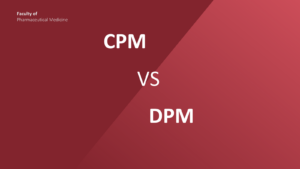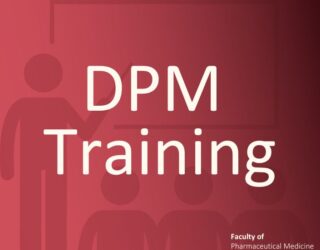DPM Training Programme 2025 | Module 6: Communication, Value and Access
Thursday 24 July 2025
Find out more
Posted on: Monday 15 January 2024
In the field of pharmaceutical medicine, professionals often pursue advanced qualifications to enhance their expertise and career prospects. Two notable qualifications in this domain are the Diploma in Pharmaceutical Medicine (DPM) and the Certificate in Pharmaceutical Medicine (CPM). Explore the key differences between these two certifications, shedding light on their respective entry criteria, benefits, and examination structures.

The CPM was launched in 2019 and is designed for physicians as well as non-medical professionals working in pharmaceutical medicine who are seeking career development opportunities. Gaining the CPM demonstrates commitment to the specialty and provides formal recognition of knowledge and expertise. It can also serve as a stepping stone to the DPM.
Established in 1976, the DPM is a prestigious qualification considered a landmark achievement for pharmaceutical physicians. Comprising two parts, the DPM confirms a candidate’s knowledge and expertise in pharmaceutical medicine upon successful completion. The DPM is also a mandatory part of Pharmaceutical Medicine Specialty Training (PMST).
Please note: Although non-physicians can take the CPM paper, they will not be eligible for the DPM/Part 2 papers. Only GMC registered medics will be able to take all three DPM papers.
Exam Fee: £415
Part 1 exam entry: £415
Part 2 exam entry: £720
Part 2 exam entry (one exam): £360

Thursday 24 July 2025
Find out more

Thursday 14 August 2025
10:00 - 17:00
Find out more

Thursday 11 September 2025
10:00 - 17:00
Find out more

Thursday 25 September 2025
10:00 - 17:00
Find out more